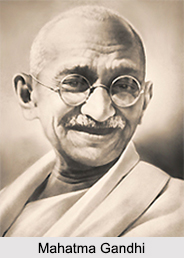 Marxists always have stood by the faith that economic and social circumstances have been forever determining one`s religious beliefs, the nation`s legal systems and a society`s cultural frameworks. They are also of the view that `art` and the aesthetic world should not only exemplify such conditions truthfully, but also seek to make them better. Such Marxist view of aesthetics is not although quite prospering in today`s consumerist society, but stays on to enquire about responsible questions. Such high-flowing and ambitious thoughts, however was not just built in a day; it did take a lot more of the most historical brains to make Marxism what it is today. Marxism is the political doctrine and practice, that has been derived from the works of Karl Marx and Friedrich Engels. "Marxism" essentially represents an economic political theory, under which the eye of law is considered a tool of tyranny and dominance and which the "ruling class" - the heavyweights in power - utilises against the "proletariat" - the blue-collared servants. Marxism holds in its heart of hearts an analytical evaluation of `capitalism` and a theory of vast social metamorphosis. The potent, fierce and innovatory analytical methods Marx had inaugurated, have influenced down the line an all-embracing range of disciplines. The 20th and 21st centuries have had exerted sufficient influence and charm upon the erstwhile Marxist approaches, which further have made their theoretical presence felt in the Eastern and Western academic fields, comprising: archaeology/anthropology, media studies, political science, theatre, history, sociological theory, education, economics, literary criticism, aesthetics, critical psychology and philosophy. Indeed, with Karl Marx and Friedrich Engels being two men from the west, did not just stop India from being captivated and enamoured with the principles that have just been described above. Leaving out the socialist, economic and political fronts, Marxism is that domain which was tremendously propagated in India through the field of Indian literature. Truly, as can be witnessed later, Marxism in Indian literature has been quite profound and distinctive in the strong hands of master men.
Marxists always have stood by the faith that economic and social circumstances have been forever determining one`s religious beliefs, the nation`s legal systems and a society`s cultural frameworks. They are also of the view that `art` and the aesthetic world should not only exemplify such conditions truthfully, but also seek to make them better. Such Marxist view of aesthetics is not although quite prospering in today`s consumerist society, but stays on to enquire about responsible questions. Such high-flowing and ambitious thoughts, however was not just built in a day; it did take a lot more of the most historical brains to make Marxism what it is today. Marxism is the political doctrine and practice, that has been derived from the works of Karl Marx and Friedrich Engels. "Marxism" essentially represents an economic political theory, under which the eye of law is considered a tool of tyranny and dominance and which the "ruling class" - the heavyweights in power - utilises against the "proletariat" - the blue-collared servants. Marxism holds in its heart of hearts an analytical evaluation of `capitalism` and a theory of vast social metamorphosis. The potent, fierce and innovatory analytical methods Marx had inaugurated, have influenced down the line an all-embracing range of disciplines. The 20th and 21st centuries have had exerted sufficient influence and charm upon the erstwhile Marxist approaches, which further have made their theoretical presence felt in the Eastern and Western academic fields, comprising: archaeology/anthropology, media studies, political science, theatre, history, sociological theory, education, economics, literary criticism, aesthetics, critical psychology and philosophy. Indeed, with Karl Marx and Friedrich Engels being two men from the west, did not just stop India from being captivated and enamoured with the principles that have just been described above. Leaving out the socialist, economic and political fronts, Marxism is that domain which was tremendously propagated in India through the field of Indian literature. Truly, as can be witnessed later, Marxism in Indian literature has been quite profound and distinctive in the strong hands of master men.
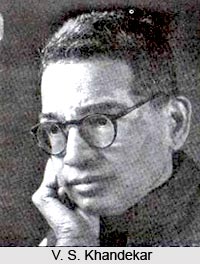 Marxism in Indian literature was first noticed during the Indian Independence Movement, when the theories of Communism and Socialism had entered the pre-Independent scenario in an overwhelming manner. The arrival of the 20th century in India, severely oppressed under the British, was also that period during which the concept of the "middle class" had arose, with every household including a man, who was fuelled with the principle to lash out against the tyrannical government and everything that was being imposed by such an administration. And the British Indian set-up was just perfect to have provided a platform thus. Even the higher section of society had joined in this crusade of the proletariat and this "brave, angry young man" image was mostly mirrored and manifest through the most-accepted field of literature. With the tremendous and passionate propagation of pamphlets, newspapers, evening dailies, essays, articles in the short literary section and drama, poetry and short stories in the broader and more extensive section, Indian literature was doused in Marxism at a point of time, during which Marathi, Urdu, Hindi and of course, Bengali literature had come to most view and mass light.
Marxism in Indian literature was first noticed during the Indian Independence Movement, when the theories of Communism and Socialism had entered the pre-Independent scenario in an overwhelming manner. The arrival of the 20th century in India, severely oppressed under the British, was also that period during which the concept of the "middle class" had arose, with every household including a man, who was fuelled with the principle to lash out against the tyrannical government and everything that was being imposed by such an administration. And the British Indian set-up was just perfect to have provided a platform thus. Even the higher section of society had joined in this crusade of the proletariat and this "brave, angry young man" image was mostly mirrored and manifest through the most-accepted field of literature. With the tremendous and passionate propagation of pamphlets, newspapers, evening dailies, essays, articles in the short literary section and drama, poetry and short stories in the broader and more extensive section, Indian literature was doused in Marxism at a point of time, during which Marathi, Urdu, Hindi and of course, Bengali literature had come to most view and mass light.
Mahatma Gandhi was a key turning point and decisive factor to the first uprisings of the introduction of Marxism in Indian literature. Prior to the Second World War, the First World War had laid the foundation stone in Indian literature and the pre-Independent society in general, which was most intense in Maharashtra, particularly in Bombay, which was to some extent spearheaded by Gandhiji. A brief history is however required however in this regard. Industries in Maharashtra had begun to grow on a large scale during the First World War. The labour class had come into existence already. Simultaneously, the Indian Communist Party was established in 1925 and the labour movement had begun to strike roots. The new Marxist Philosophy put forward a fascinated aspect for the then native youth. However, this did not help create a progressive literary movement during that time. The influence of Marxism did not extend beyond the delineation of occasional disagreements between the rich and the poor, slogan shouting by the hero about `total revolution` and deriding down the tradition-loving class as `the bourgeoisie`. The novels of P. Y. Deshpande (1899-1986), V. S. Khandekar (1898-1976), V. V. Hadap (1900-60), G. T. Madkholkar (1899-1976) and the poems of Kusumagraj, Anant Kanekar (1905-80) and V. R. Kant (b. 1913) reflect the influence of Marxism upon Indian literature to a certain extent.
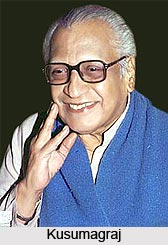 Beyond the regional restriction of Marxism in the field of Indian literature, the later periodical and rather more instigated seeds of this political philosophy of the "brave new world" were next witnessed during the period of Second World War, when the exposure to Marxism was most profound. The political situation in Germany, the fact that they were, for the most part, students, and their aspiration to become writers - everything contributed in varying degrees to a sense among them that they should form some sort of literary association. Writing was under all likelihood, the only avenue left open to the young guns - "Most of the members of our small group wanted to become writers, What else could they do? We were incapable of manual labour. We had not learnt any craft and our minds revolted against serving the imperialist government. What other field was left?" Such was the statement given by Sayed Sajjad Zaheer, the most influential and capable a man, who was the recognised and venerated face behind the establishment of the All-India Progressive Writers` Association (AIPWA). Indeed, AIWPA was that daring and intimidating literary organisation, which had spearheaded almost all the Marxist-oriented literary activities in the Indian subcontinent.
Beyond the regional restriction of Marxism in the field of Indian literature, the later periodical and rather more instigated seeds of this political philosophy of the "brave new world" were next witnessed during the period of Second World War, when the exposure to Marxism was most profound. The political situation in Germany, the fact that they were, for the most part, students, and their aspiration to become writers - everything contributed in varying degrees to a sense among them that they should form some sort of literary association. Writing was under all likelihood, the only avenue left open to the young guns - "Most of the members of our small group wanted to become writers, What else could they do? We were incapable of manual labour. We had not learnt any craft and our minds revolted against serving the imperialist government. What other field was left?" Such was the statement given by Sayed Sajjad Zaheer, the most influential and capable a man, who was the recognised and venerated face behind the establishment of the All-India Progressive Writers` Association (AIPWA). Indeed, AIWPA was that daring and intimidating literary organisation, which had spearheaded almost all the Marxist-oriented literary activities in the Indian subcontinent.
The first All-India Progressive Writers` Conference was held in Lucknow on April 10, 1936. The choice of place and the date for the Conference bore much significance in association with the influence of Marxism in Indian literature and its pan-Indian literary circuit. In April the annual meeting of the All-India National Congress was scheduled to be held in Lucknow and Pandit Jawahar Lal Nehru had been chosen to preside over its sessions. This was the period of the United Front and Soviet diplomacy had boosted foreign communist parties to enter into anti-fascist alliances. Within the Congress, Jawahar Lal Nehru was the leader of the left-wing and Sayed Sajjad Zaheer was had invited him to address the AIPWA Conference. In his speech, Nehru had indicated his warm backing for the Conference; Sarojini Naidu, a well-known Congress leader and poet, had sent the Conference a message of solid encouragement and support. Other outstanding leftist leaders including Jai Prakash Narain, Yusuf Mahraly, Indulal Yajnik, Kamla Devi Chattopadhay and Mian Iftakhar-Ud-Din had participated in the Progressive Writers` Conference. However, the number of literary delegates was not much extraordinary; only two from Bengal, three from Punjab, one from Madras, two from Gujarat, six from Maharashtra and twenty-five from Uttar Pradesh had trudged long distances to the Conference. 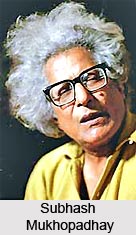 Of all the 25 Uttar Pradesh delegates, not one had represented Hindi writers. Well-known Hindi writers - Babu Maithili Sharan Gupta, Pandit Banarsi Das Chaturvedi, Sumitra Nandan Pant, Subhadra Kumari Chouhan, Pandit Bal Krishnan Sharma - had indicated mild recognition of the new Marxist-adhering literary movement, but had declined to attend the conference. The absence of Hindi writers was handsomely compensated by the presence of Munshi Prem Chand, who had agreed to preside over the AIPWA Conference. No one however had considered Prem Chand as a Marxist. Munshi Prem Chand had nevertheless represented the life of the Indian peasant in his novels, with deep discernment and compassion for his poverty and suffering, his superstitions and weaknesses.
Of all the 25 Uttar Pradesh delegates, not one had represented Hindi writers. Well-known Hindi writers - Babu Maithili Sharan Gupta, Pandit Banarsi Das Chaturvedi, Sumitra Nandan Pant, Subhadra Kumari Chouhan, Pandit Bal Krishnan Sharma - had indicated mild recognition of the new Marxist-adhering literary movement, but had declined to attend the conference. The absence of Hindi writers was handsomely compensated by the presence of Munshi Prem Chand, who had agreed to preside over the AIPWA Conference. No one however had considered Prem Chand as a Marxist. Munshi Prem Chand had nevertheless represented the life of the Indian peasant in his novels, with deep discernment and compassion for his poverty and suffering, his superstitions and weaknesses.
It can be quite comprehended by now that the period within the Partition of India of 1947 and the beginning of the reorganisation of the states within the new geographical boundaries of India will be remembered for two reasons in the history of Indian literature and its connection with Marxism and the Marxist principles of life. First, there was witnessed a growth of new literature out of the experience of partition, i.e. the Marxist literature within the framework of Oriental Indian literature. Second, there was also a growth of a new literature from the sense of fulfilment that the Independence had ushered in. Most unfortunately, that `fulfilment` was short lived. It had become a part of a larger experience of disillusionment as well as hope created by the changed political situation. The Indian Independence on 15th August, 1947 had brought in a sudden overriding sensing of emancipation and perfect and idyllic liberation from the imperialist tyranny, which was outstandingly mirrored in literature. However, this was just a momentary phase of happiness; the joy and hope of freedom had turned into unexpected disillusionment and frustration. The bleak and breakdown economy and its greater disorderliness and gloom in the country, the failure of the Congress and the decline of moral values, poverty, unemployment, social inequality and political corruption had begun to be once again upheld in Indian literature. And the essential balm and soothing consolation was once more provided through espousing Marxism, which was the true last resort of the writers who wished to voice out their hopelessness in every sphere of society. Marxism in Indian literature once more had begun to take its dramatic turn during the budding nation`s flowering and a looking forward towards an unsure future.
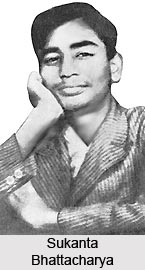 Bengali literature, mostly Bangla poetry and poetic verses had come to light during this rather metamorphosing phase, with other literary forms also assisting the writers. Authors from this period had outlived and survived the Independence and had considered themselves unlucky and misplaced in such a time, when the country was mostly once again disintegrating. Yet, at a more mundane level, the narratives of political struggles had projected the possibilities of a new society and had generated hope and conviction. The Bengali poems of Subhash Mukhopadhay (Agni Kon, 1948) and of Sukanta Bhattacharya (Chad Patra, 1948), both Marxists, had articulated the determined voice of revolution. The silver lining of hope visible amidst this sinister grimness was the ideology inciting people to change the existing social order, i.e., indeed by the all-encompassing and accepted predominance of Marxist influence in Indian literature, precisely in Bengali literature and its poetry. The Marxist writers had extended their influence to a remarkable extent. Subhash Mukhopadhay although had made his mark on Bengali poetry in the early years of 1940s, he had matured into an artist in the 1950s. Sukanta Bhattacharya, who had expired in 1947, had turned into idol of the younger generation and had dominated Bengali poetry with his fresh approach and exuberance. The Marathi poets with pronounced Marxist inclination, Sharatchandra Muktibodh and Vinda Karandikar and the Malayalam poet Vayalar Rama Varma, the most admired poet of social revolution, whose Kontayum punulum had appeared in 1950, have one thing in common - "robust optimism". The finest and the most illustrious work of this period, demonstrating the hold of Marxism in Indian literature, a work that had articulated the voices of the oppressed and had projected the dream of a social order free of exploitation and tyranny is the epoch-making Telugu poem Mahaprasthanam (1950) by Sri Sri. Narrative literature too had fearlessly upheld the struggle of the oppressed. Kishan Chand had portrayed the heroic uprising in Telengana, in his Ajanta Ke Age (1948) and Jab Khet Jage (1952). Most of the writings of Yashpal, Nagarjun and Rahul Sankrityayan, all of them penning in Hindi, also had shared an optimism and vision of a new society. Hence, Marxism and its control upon Indian literature, with particular stress upon the post-Independent India was most profound, which with time, has gained its generic foothold, to be remembered for centuries to come.
Bengali literature, mostly Bangla poetry and poetic verses had come to light during this rather metamorphosing phase, with other literary forms also assisting the writers. Authors from this period had outlived and survived the Independence and had considered themselves unlucky and misplaced in such a time, when the country was mostly once again disintegrating. Yet, at a more mundane level, the narratives of political struggles had projected the possibilities of a new society and had generated hope and conviction. The Bengali poems of Subhash Mukhopadhay (Agni Kon, 1948) and of Sukanta Bhattacharya (Chad Patra, 1948), both Marxists, had articulated the determined voice of revolution. The silver lining of hope visible amidst this sinister grimness was the ideology inciting people to change the existing social order, i.e., indeed by the all-encompassing and accepted predominance of Marxist influence in Indian literature, precisely in Bengali literature and its poetry. The Marxist writers had extended their influence to a remarkable extent. Subhash Mukhopadhay although had made his mark on Bengali poetry in the early years of 1940s, he had matured into an artist in the 1950s. Sukanta Bhattacharya, who had expired in 1947, had turned into idol of the younger generation and had dominated Bengali poetry with his fresh approach and exuberance. The Marathi poets with pronounced Marxist inclination, Sharatchandra Muktibodh and Vinda Karandikar and the Malayalam poet Vayalar Rama Varma, the most admired poet of social revolution, whose Kontayum punulum had appeared in 1950, have one thing in common - "robust optimism". The finest and the most illustrious work of this period, demonstrating the hold of Marxism in Indian literature, a work that had articulated the voices of the oppressed and had projected the dream of a social order free of exploitation and tyranny is the epoch-making Telugu poem Mahaprasthanam (1950) by Sri Sri. Narrative literature too had fearlessly upheld the struggle of the oppressed. Kishan Chand had portrayed the heroic uprising in Telengana, in his Ajanta Ke Age (1948) and Jab Khet Jage (1952). Most of the writings of Yashpal, Nagarjun and Rahul Sankrityayan, all of them penning in Hindi, also had shared an optimism and vision of a new society. Hence, Marxism and its control upon Indian literature, with particular stress upon the post-Independent India was most profound, which with time, has gained its generic foothold, to be remembered for centuries to come.













